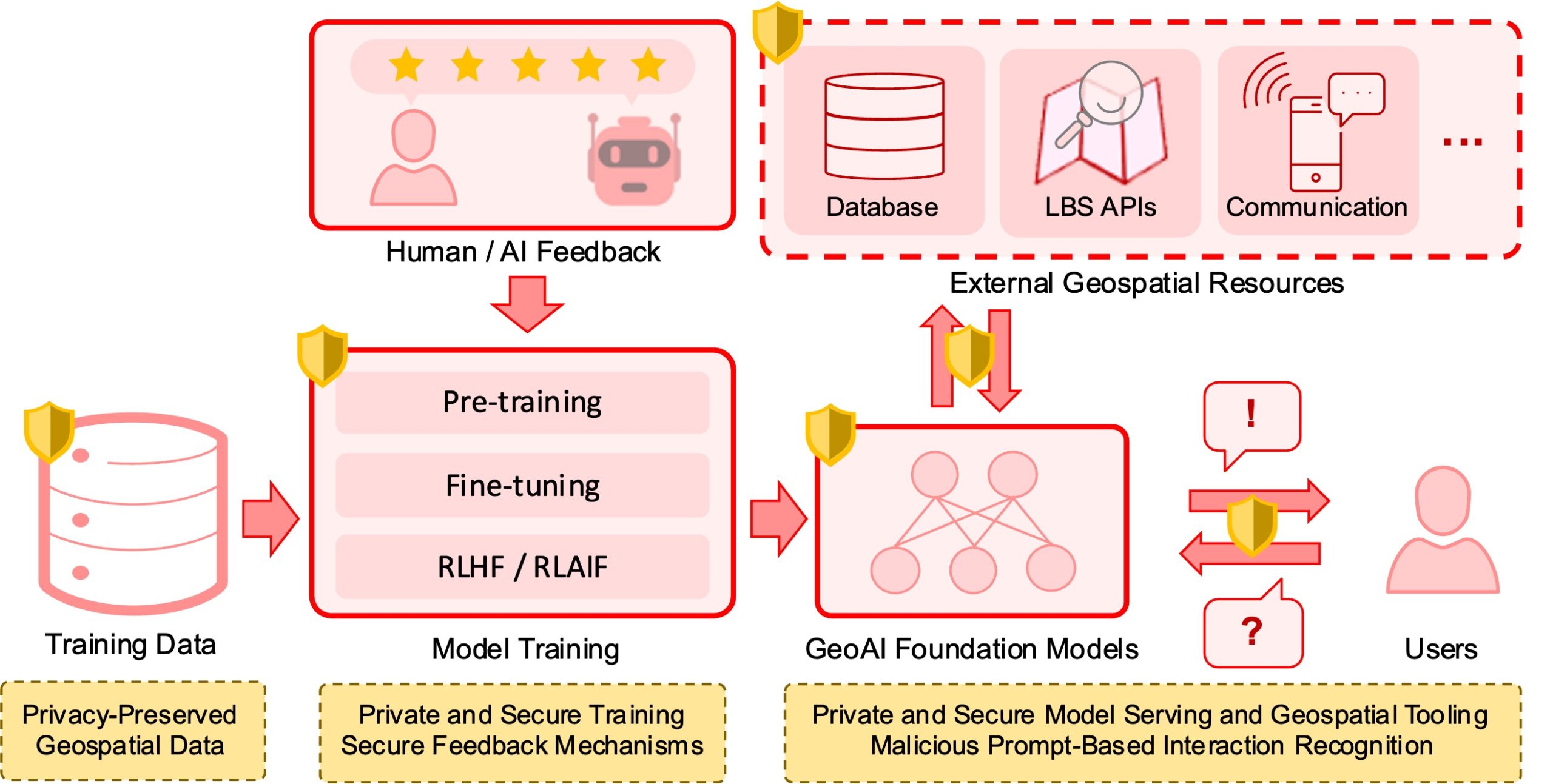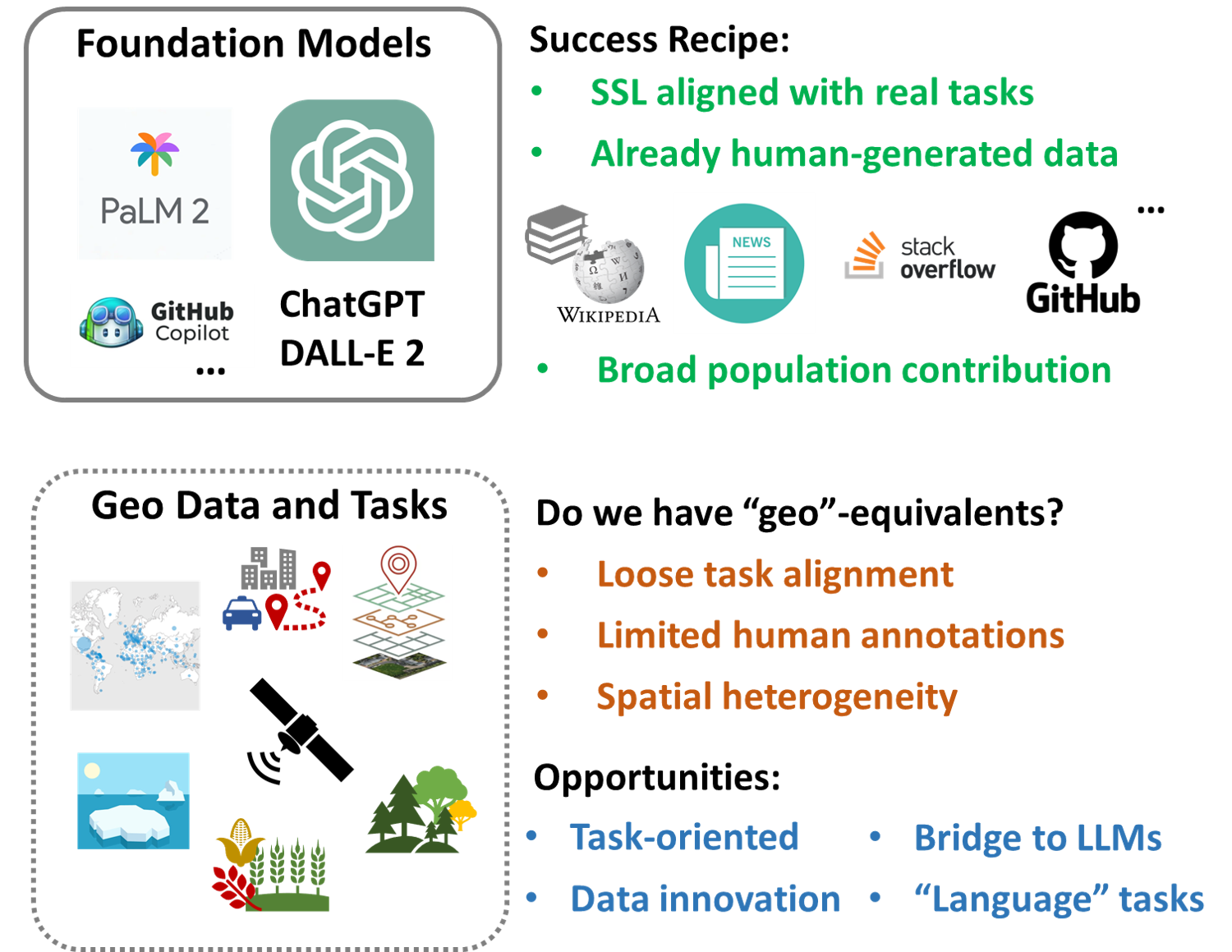The 31st ACM SIGSPATIAL International Conference on Advances in Geographic Information Systems (ACM SIGSPATIAL 2023) will be held in Hamburg, Germany, Monday November 13 – Thursday November 16, 2023. This is the flagship international conference organized by the special interest group of SPATIAL at ACM.
GeoDS lab members have two vision papers about GeoAI Foundation Models (Geo-Foundation Models) accepted as oral presentations.
Jinmeng Rao, Song Gao, Gengchen Mai, Krzysztof Janowicz. (2023) Building Privacy-Preserving and Secure Geospatial Artificial Intelligence Foundation Models (Vision Paper).
Abstract: In recent years we have seen substantial advances in foundation models for artificial intelligence, including language, vision, and multimodal models. Recent studies have highlighted the potential of using foundation models in geospatial artificial intelligence, known as GeoAI Foundation Models or Geo-Foundation Models, for geographic question answering, remote sensing image understanding, map generation, and location-based services, among others. However, the development and application of GeoAI foundation models can pose serious privacy and security risks, which have not been fully discussed or addressed to date. This paper introduces the potential privacy and security risks throughout the lifecycle of GeoAI foundation models and proposes a comprehensive blueprint for preventative and control strategies. Through this vision paper, we hope to draw the attention of researchers and policymakers in geospatial domains to these privacy and security risks inherent in GeoAI foundation models and advocate for the development of privacy-preserving and secure GeoAI foundation models.

Yiqun Xie, Zhaonan Wang, Gengchen Mai, Yanhua Li, Xiaowei Jia, Song Gao and Shaowen Wang. (2023) “Geo”-Foundation Models: Reality, Gaps and Opportunities (Vision Paper).
Abstract: With the recent rapid advances of revolutionary AI models such as ChatGPT, foundation models have become a main topic for the discussion of future AI. Despite the excitement, the success is still limited to specific types of tasks. Particularly, ChatGPT and similar foundation models have unique characteristics that are difficult to replicate for most geospatial tasks. This paper envisions several major challenges and opportunities in the creation of geospatial foundation (geo-foundation) models, as well as potential future adoption scenarios. We also expect that a major success story is necessary for geo-foundation models to take off in the long term.
